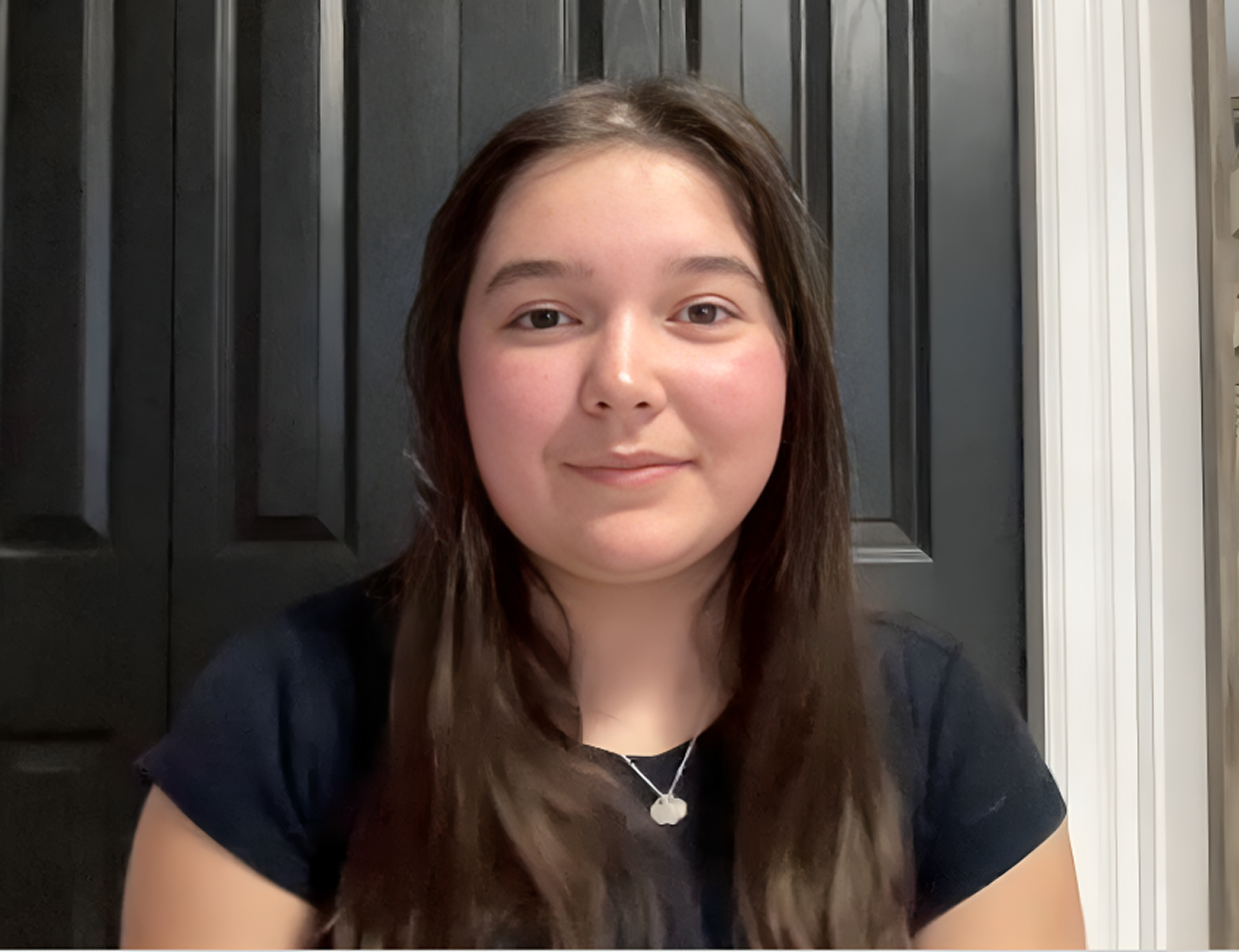
As you approach your final year of high school, one big question may loom: is Grade 12 chemistry hard? Many students worry about this course because it’s often a prerequisite for university programs in health, engineering and the sciences. It dives deeper into topics learned in Grade 11 and introduces complex concepts that require both conceptual understanding and math skills. Having a good foundation in earlier science and math courses, such as Grade 10 and Grade 11 chemistry and physics, is crucial for success in Grade 12 chemistry.
This article takes a thorough look at why Grade 12 chemistry is perceived as difficult, what you’ll actually study, and how you can set yourself up for success. Along the way, we’ll provide practical tips, student‑oriented advice, and a reminder that you’re not alone—thousands of students have found Grade 12 chemistry challenging but ultimately manageable with the right strategies. Mastering Grade 12 chemistry can open doors to a wide range of university programs and STEM careers.
💡 Approach Grade 12 Chemistry with confidence. Grade 12 chemistry doesn’t have to feel overwhelming when you have the right support. Work with a TutorLyft Grade 12 Chemistry tutor to stay on top of concepts, build strong study habits, and enter class prepared instead of stressed.
Introduction to Chemistry: Setting the Stage
Chemistry is one of the most fundamental science subjects, shaping our understanding of the world at the molecular level. For high school students, especially those considering careers in science, technology, engineering, or mathematics (STEM), taking Grade 12 Chemistry is a crucial step. This course goes beyond the basics, introducing advanced topics such as organic chemistry, chemical bonding, and atomic theory. By exploring these areas, students gain a deep understanding of chemical principles and how they apply to real-world situations—from the medicines we take to the materials we use every day.
With the increasing availability of online learning, students now have access to a wide range of online courses and resources tailored to different learning styles. Whether you prefer visual aids, interactive simulations, or step-by-step tutorials, there are tools to help you grasp even the most complex concepts. Staying organized and choosing resources that match your learning style can make a significant difference in mastering Grade 12 Chemistry. Ultimately, this course not only prepares you for further studies in science but also helps you develop analytical thinking and problem-solving skills that are valuable in any field.
Understanding Grade 12 Chemistry: Beyond the Basics

Grade12 chemistry, called SCH4U in Ontario, is the capstone high‑school course for chemistry. It’s designed to deepen your understanding of chemical concepts so you’re prepared for university‑level work. To fully appreciate the material, it helps to know what you’ll be learning. The course is usually divided into five core units: Mastering each concept in these units is essential for success in the course.
- Organic Chemistry – You’ll study the structure, properties, and reactions of carbon‑based compounds. This includes a focus on organic compounds, their significance, and their roles in various chemical and biological contexts. Topics include naming organic molecules (nomenclature), functional groups such as alcohols and acids, and reaction mechanisms. These concepts are relevant to pharmaceuticals, plastics and countless biological processes.
- Structure and Properties of Matter – This unit dives into atomic theory, electron configurations, periodic trends and bonding. A strong understanding of the periodic table is crucial for grasping these foundational principles. Understanding how atoms bond to form molecules (covalent, ionic, metallic bonds) helps explain why substances behave the way they do.
- Thermochemistry and Kinetics – Here you examine energy changes in chemical reactions and factors that influence reaction rates. You’ll study enthalpy changes (exothermic versus endothermic reactions), Hess’s law, catalysts, and how temperature and concentration affect the speed of reactions.
- Chemical Systems and Equilibrium – This section focuses on reversible reactions. You learn Le Châtelier’s principle (how changing conditions can shift an equilibrium), acid–base equilibrium, pH and buffers. These ideas explain everything from human blood pH regulation to industrial chemical yields.
- Electrochemistry – The final unit explores oxidation–reduction (redox) reactions and their applications. Assigning oxidation numbers, balancing redox equations and studying electrochemical cells will show you how batteries work and why metals corrode.
Each unit combines theory with lab work. Students will conduct experiments to apply theoretical knowledge and develop scientific inquiry skills. Whether in a physical lab or through online simulations, you’ll design experiments, form hypotheses, interpret data and write reports. This investigative process is central to learning chemistry.
Grade 12 Chemistry Curriculum: What to Expect and Key Topics
The Grade 12 Chemistry curriculum is designed to challenge students with advanced topics and deepen their understanding of the subject. Building on the foundation from previous years, the course covers key concepts such as organic chemistry, chemical kinetics, and equilibrium constants. Students will explore the intricacies of chemical reactions, atomic structure, and chemical properties, blending theoretical knowledge with hands-on practical application.
Throughout the course, you’ll encounter abstract concepts like acid-base chemistry and redox reactions, which are essential for understanding the underlying chemical principles that govern the behavior of matter. Analytical skills are developed through conducting experiments, analyzing data, and applying problem-solving methods to real-world scenarios. By engaging with these advanced topics, students gain a deep understanding of chemical reactions and the ability to think critically about complex scientific problems. This comprehensive approach ensures that you’re well-prepared for further studies in chemistry and related fields.
Why Do Students Often Find Grade 12 Chemistry Difficult?
The perception of difficulty in Grade 12 chemistry isn’t entirely unfounded. Several factors contribute to the challenge:
- Depth of Content – Grade 12 chemistry builds on earlier classes but moves at a faster pace and dives much deeper into each topic. The volume of new material increases significantly. You aren’t just memorizing formulas; you’re exploring why reactions occur and how different principles interconnect.
- Abstract Concepts and Math – Concepts such as molecular geometry, orbital hybridization and equilibrium involve mental models rather than tangible objects. Understanding them requires visualizing molecules in three‑dimensional space. Moreover, the course demands strong mathematical skills—calculations involving equilibrium constants, reaction rates and thermodynamic quantities appear throughout.
- Laboratory Skills – Labs require attention to detail. Proper attire (lab coat, goggles, gloves), careful measurement, and safe chemical handling are essential. You’re expected to follow protocols, observe reactions and analyze data. For many students, lab work can be both exciting and daunting.
- Transition from Grade 11 – The leap from Grade 11 to Grade 12 chemistry is notable. Discussions among students indicate that Grade 12 introduces significantly more complex concepts and a heavier workload. Without a solid foundation from earlier courses, it’s easy to feel overwhelmed. Having a strong foundation in previous science and math courses is crucial for success in Grade 12 chemistry.
- Comparative Difficulty – Among Grade 12 science courses, chemistry is often ranked as one of the most challenging because it blends theory, math and experimentation. Compared to other science subjects like biology and physics, chemistry requires a balance of analytical skills, theoretical understanding, and practical application. While biology emphasizes memorization and physics focuses on math, chemistry sits in the middle, requiring both strong conceptual thinking and calculation.
Grades achieved in Grade 12 chemistry not only reflect your understanding and mastery of the subject but can also play a significant role in university admissions, especially for science and engineering programs.
These aspects can make Grade 12 chemistry feel intimidating. But remember, difficulty is subjective. Students who enjoy problem‑solving and logical reasoning often appreciate the course’s challenges.
Teacher-Student Dynamics: The Role of Support and Communication
A strong teacher-student relationship is key to success in chemistry, especially when tackling challenging and abstract concepts. Teachers play a vital role in helping students understand key concepts, develop effective problem-solving strategies, and build confidence in their abilities. In today’s online learning environment, teachers can leverage virtual labs, online forums, and interactive tools to provide personalized support and feedback.
These resources allow students to learn at their own pace, ask questions, and seek clarification whenever needed. Teachers can also provide tips and recommend trusted resources, such as Khan Academy, to help students stay organized and focused throughout the course. Open communication and timely support empower students to overcome obstacles and achieve a deeper understanding of chemistry, whether they’re learning in a traditional classroom or through an online course.
Strategies for Success: Study Skills Tailored to Grade 12 Chemistry
You can’t control the complexity of the material, but you can control how you approach it. Here are evidence‑based strategies to help you succeed: Adopting a strategic approach to studying and preparation is essential for maximizing your success in Grade 12 Chemistry.
1. Active Practice Over Passive Reading
It’s tempting to highlight notes and reread chapters, but research shows that active practice is more effective. The Stanford University Department of Chemistry reminds students that mastering chemistry requires time and regular practice. When working through practice problems, focus on understanding each step rather than simply repeating exercises. Ask yourself:
- Why is this piece of information relevant?
- What formula should I use and why?
- Can I derive the same answer using a different method?
Being able to explain your reasoning ensures you’re not just memorizing but truly comprehending.
2. Preview Material and Stay Ahead
Reading ahead before class helps you absorb lectures more effectively. The Stanford tips suggest doing a quick read and warm‑up problems before attending lectures. Even a brief overview can make the instructor’s explanations clearer because you’ll be familiar with the vocabulary and fundamental ideas. Use class time to deepen your understanding rather than encountering concepts for the first time.
3. Make the Most of Lab Sessions
Laboratory work isn’t busywork—it’s a chance to see theory in action. Treat labs like valuable practice tests. The Stanford guide emphasizes that lab sections highlight key concepts you need to understand. Before each lab, review the procedure and underlying principles. Well-structured lesson plans help guide lab activities and ensure all key learning objectives are met. During the lab, take detailed notes on observations. Afterwards, reflect on what happened and how it connects to lecture material. If something didn’t go as expected, ask why.
4. Ask Questions and Seek Clarification
Curiosity is a sign of engaged learning. Instructors appreciate when students ask questions, and there are no “dumb” questions in science. If you’re confused about why a reaction proceeds in a certain direction or how to balance a redox equation, bring it up in class or during office hours. Many students wait until they’re completely lost to seek help; instead, adopt a proactive approach. Keep a running list of queries as you study and address them as soon as possible.
5. Study When You’re Alert and Break Up Sessions
Chemistry demands mental energy. The Stanford guide advises studying when you’re awake, not at the end of the day when you’re worn out. Break study sessions into focused blocks—30 to 60 minutes—with short breaks in between. Spacing your practice improves retention and reduces burnout. Avoid last‑minute cramming; consistent review over several weeks helps build mastery.
6. Collaborate and Teach Others
Explaining concepts to peers strengthens your own understanding. Form study groups where each member teaches a different topic. When you have to explain Hess’s law or acid–base titration to someone else, gaps in your knowledge become clear and you’re forced to think critically. Collaborative learning also exposes you to alternative problem‑solving techniques. Engaging with other students through study groups or online forums allows you to clarify concepts, exchange tips, and stay motivated, which greatly enhances your learning experience.
7. Use Supplemental Resources Wisely
Textbooks and class notes form the core of your study materials, but supplementary resources can provide varied explanations. Online videos, animations and practice sites can clarify tricky concepts (for example, visualizing molecular shapes or practicing equilibrium problems). Websites like Superprof offer general chemistry tips, and Canadian Virtual School suggests online simulations and practice quizzes. Choose high‑quality resources that align with your curriculum and meet curriculum standards to ensure comprehensive coverage of required topics.
8. Monitor Your Progress and Reflect
After each test, spend time analyzing mistakes. It is important to identify key areas where improvement is needed so you can focus your study efforts more effectively. Were they due to conceptual misunderstandings, calculation errors or misreading the question? Reflection helps you identify weak areas and adjust your study approach. Don’t simply look up the correct answer; redo the problem without the solution and note where you get stuck.
Learning at Your Own Pace: Flexibility and Self-Directed Study

One of the greatest advantages of online learning is the flexibility it offers students. With the ability to learn at your own pace, you can revisit challenging material, access online resources, and seek support whenever you need it. This approach is especially helpful for students balancing academics with other commitments, as it allows for a customized study schedule that fits your lifestyle.
By taking charge of your learning, you can develop strong study habits, avoid cramming, and focus on truly understanding complex concepts rather than relying on rote memorization. Online platforms provide a wealth of practice problems and test questions, enabling you to assess your knowledge, identify areas for improvement, and adjust your study plan accordingly. This self-directed approach not only leads to a deep understanding of chemical principles but also prepares you for success in future academic and professional pursuits.
Handling Labs and Experiments: Tips for Safe and Effective Practice
Grade 12 chemistry emphasizes lab work, whether in person or online. Here are practical tips for navigating this component:
- Prioritize Safety – Always wear a lab coat, safety goggles and gloves. Tie back long hair, avoid loose clothing and follow safety protocols. Understand where the eye wash station and fire extinguisher are located.
- Understand Equipment – Familiarize yourself with common lab equipment like Bunsen burners, pipettes and spectrophotometers. Knowing how to operate them correctly improves accuracy and prevents accidents.
- Measure Carefully – Precise measurement is essential in chemistry. Use proper techniques for measuring liquids (read the bottom of the meniscus) and solids (zero the balance). Record data in a lab notebook immediately.
- Dispose of Materials Properly – Follow your school’s guidelines for waste disposal. Never pour chemicals down the sink unless instructed; separate waste according to type (organic, inorganic, biological).
- Reflect on Results – After completing an experiment, analyze what happened. If your yields were lower than expected, consider possible sources of error. Discuss results with classmates or your instructor to deepen understanding. Reflecting on lab outcomes helps develop an in-depth understanding of chemical processes.
By approaching labs thoughtfully, you’ll develop practical skills that complement theoretical learning.
Comparing Grade 12 Chemistry to Other Courses
Is Grade 12 chemistry harder than biology or physics? Each discipline presents unique challenges, so comparisons can be subjective. However, there are some general observations:
- Chemistry vs. Biology – Biology often involves memorization of complex systems and terminology, whereas chemistry demands problem‑solving and mathematical reasoning. Biology explores life processes, while chemistry explains underlying molecular interactions. Chemistry also provides a foundation for advanced studies in the life sciences, including medicine and biotechnology.
- Chemistry vs. Physics – Physics heavily relies on mathematical calculations (algebra, trigonometry, calculus). Chemistry uses math too, but many problems involve stoichiometry, equilibrium and thermodynamics, which require conceptual interpretation. Physics experiments often confirm well‑established laws, while chemistry labs involve exploring reactions and analyzing substances.
- Interdisciplinary Connections – The real world doesn’t separate these sciences. For example, biochemistry combines biology and chemistry, and physical chemistry draws on physics principles. Understanding chemistry provides a versatile foundation for multiple fields.
Ultimately, how hard you find each course depends on your interests and strengths. If you enjoy logical reasoning, puzzles and connecting theory with practice, you may thrive in chemistry.
Real‑World Applications and Future Benefits

One reason to persevere through Grade 12 chemistry is its real‑world relevance. Here are a few examples:
- Healthcare and Medicine – Pharmacists need to understand how drugs interact chemically with the body. Organic chemistry helps explain how molecules like Ibuprofen or antibiotics function.
- Environmental Science – Chemists analyze soil, water and air samples to monitor pollution. Knowledge of equilibrium and redox reactions informs environmental remediation strategies.
- Engineering and Materials Science – Chemical engineers design processes that produce fuels, plastics and pharmaceuticals. Materials scientists study how molecular structure influences properties of new materials.
- Research Scientists – Research scientists rely on chemistry knowledge and laboratory skills for careers in fields such as pharmaceuticals, agriculture, cosmetics, and environmental science. A solid foundation in chemistry is essential for scientific research and investigation across these industries.
- Everyday Life – Cooking involves chemical reactions (caramelization, fermentation), cleaning uses surfactants and acids, and even breathing is an oxidation–reduction process. Understanding chemistry demystifies the world around you.
A strong performance in Grade 12 chemistry also strengthens your university applications for science, engineering or health programs. Many universities require or strongly recommend SCH4U for admission to programs like medicine, pharmacy or biochemistry.
Mental Preparation: Cultivating the Right Mindset
Success in Grade 12 chemistry isn’t just about knowledge—it’s also about mindset. Here’s how to stay resilient:
- Embrace Struggle as Part of Learning – It’s normal to find certain topics difficult. The Stanford guide notes that some of the best students struggled before mastering chemistry. View challenges as growth opportunities rather than failures.
- Set Realistic Goals – Break long‑term objectives into smaller steps. For example, aim to understand acid–base equilibria over two weeks, then move to electrochemistry. Celebrate small victories to build momentum.
- Manage Stress – School can be demanding, especially if you’re balancing multiple courses, extracurriculars or a job. Practice stress‑reduction techniques like deep breathing, exercise or talking to friends. A calm mind retains information better.
- Seek Support Early – Don’t wait until you’re overwhelmed to ask for help. Teachers, tutors and classmates can clarify misconceptions and provide encouragement. Recognize that needing assistance is normal.
- Stay Curious – Chemistry becomes more engaging when you connect it to real interests, whether cooking, cosmetics or environmental issues. Pursue projects or experiments outside class to see how theory applies in everyday life.
Resources and Support Systems
A robust support network can make Grade 12 chemistry more manageable:
- Teachers and Office Hours – Your instructor is your first resource. Use office hours to discuss homework problems or lab uncertainties. Come prepared with specific questions for the best results.
- Tutoring – One‑on‑one or small group tutoring can help address individual challenges. Services like TutorLyft match students with experienced tutors who tailor sessions to your needs. Tutors can help you review difficult concepts, develop study plans and build confidence.
- Online Courses and Simulations – Taking SCH4U online through accredited schools like Canadian Virtual School offers flexibility and self‑paced learning. Enrolling in an online high school provides an accredited and flexible alternative to traditional schooling, making it accessible for students with diverse needs. Many online platforms also provide virtual labs and interactive modules. Using an online platform allows for personalized pacing and interactive learning, helping students better prepare for university.
- Study Guides and Textbooks – Invest in a good reference book. Ensure it aligns with your curriculum and includes practice problems, clear explanations and real‑world examples.
- Peer Study Groups – Join or create a study group. Collaborative learning exposes you to different ways of approaching problems and keeps you accountable.
- Academic Support Services – Many schools have learning centres that offer workshops on time management, note‑taking and exam preparation. Don’t hesitate to take advantage of these resources.
Student Voices: Experiences and Lessons Learned
Hearing from students who have completed Grade 12 chemistry can be motivating. While individual experiences vary, there are common themes:
- “It’s a Big Step Up” – Many students note that the jump from Grade 11 to Grade 12 chemistry is significant. New concepts like equilibrium and organic mechanisms require more effort to master. However, those with strong study habits find the transition manageable.
- “Problem‑Solving Skills Improve” – Students often say that despite the initial struggle, their analytical skills improve dramatically. After working through challenging kinetics or thermodynamics problems, they feel more confident tackling complex questions.
- “Labs Are Eye‑Opening” – Many appreciate how labs bring theory to life. Watching a redox reaction in a galvanic cell or titrating an acid and base helps solidify understanding. Students who take online courses often mention how interactive simulations make up for physical labs.
- “Organized Notes and Practice Are Key” – A recurring piece of advice is to stay organized and practice consistently. Students who create detailed summary sheets and work through practice questions regularly tend to perform well.
- “Collaboration Helps” – Those who join study groups or discuss problems with friends find that teaching others solidifies their own knowledge. Peer support also makes studying more enjoyable.
Conclusion: Turning Challenge into Opportunity
So, is Grade 12 chemistry hard? Yes, it’s challenging. It requires dedication, critical thinking and time management. But difficulty doesn’t mean impossibility. By understanding what the course entails, adopting active study strategies and seeking support when needed, you can master Grade 12 chemistry and even enjoy it. The skills you gain—problem‑solving, analytical thinking and laboratory techniques—will serve you well in university and beyond, whether you pursue science, engineering, medicine or any field that values a scientific mind.
FAQs
Grade 12 chemistry in Ontario (SCH4U) is designed to prepare students for university-level science programs. It follows a rigorous curriculum with in-depth study of topics like organic chemistry, thermodynamics and equilibrium. Other provinces may have similar courses, but the overall difficulty depends on each curriculum and teaching style. The key is understanding the fundamentals and practicing regularly rather than comparing provinces.
Use active study methods such as working through practice problems and explaining each step to yourself. Read ahead before class, participate in labs, and ask questions whenever you’re unsure. Breaking study sessions into focused blocks and studying when you’re alert also helps.
Students often find equilibrium, thermodynamics and organic reaction mechanisms challenging. These topics involve abstract concepts and multi-step calculations. Focus on understanding the underlying principles and practice regularly.
Yes. Accredited institutions like Canadian Virtual School offer SCH4U online, allowing you to study at your own pace. Online courses provide flexibility and multimedia resources, but the material remains the same; success still depends on your effort and study habits.
Many science, engineering, health and technology programs require or recommend Grade 12 chemistry as a prerequisite. Completing the course with a strong grade can strengthen your application and prepare you for first-year university chemistry.
Use your teacher’s office hours, study groups, tutoring services, textbooks and online resources like simulations and practice quizzes. Seek help early and regularly to stay on top of the material.













































































